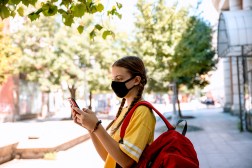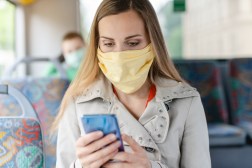UCLA launches COVID-19 website in more than 40 languages

The University of California, Los Angeles launched on Thursday a new website with health and safety recommendations related to the COVID-19 pandemic translated into more than 40 languages.
Many communities have an increased vulnerability because of a lack access to official news, public health information and safety recommendations in a language other than English, according to Karen Umemoto, director of the Asian American Studies Center at UCLA.
“Los Angeles is home to a critical mass of many non–English-speaking communities, including Asian and Pacific Islander,” she said in a press release.
More than 50 percent of people in the Greater Los Angles area don’t speak English at home, according to U.S. Census data. And according to the latest CDC data, some racial minorities face a disproportionate burden of illness and death related to COVID-19. New York City has reported that its black residents are more than twice as likely to contract and die from COVID-19 as its white residents.
Offering more equitable access to information on staying safe and basic scientific facts about the virus, TranslateCovid.org allows users to view this information in languages including Spanish, Chinese, Korean, Armenian, Japanese, Vietnamese, Navajo, Arabic, Farsi and Zapoteco, among others. The website also includes videos presented in American Sign Language.
“We know from past experiences that in a situation like a pandemic, groups that do not have access to mainstream media are often overlooked,” May Wang, professor of community health sciences at UCLA, said in the release.
For the past eight weeks, the UCLA team of students and faculty have gathered resources, vetted them for accuracy, designed and built the website, and added additional features, such as a page for reporting hate incidents related to COVID-19.
The team is also working with the Los Angeles County Department of Public Health and community-based organizations that serve non–English-speaking immigrant groups to bring awareness to this new multilingual resource hub, and working to expand materials to include more languages, such as Hindi, Burmese, Samoan and Tongan, Umemoto said.
Similar initiatives to translate health and safety information for non-English-speakers have taken place across the country, like at Rutgers University, which launched a social media campaign to translate information about the pandemic into different languages for minority and immigrant communities in New Jersey.




